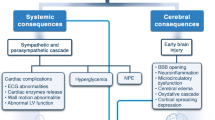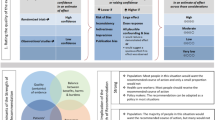Summary
Focal cerebral contusions can be dynamic and expansive, leading to delayed neurological deterioration. Due to the high mortality associated with such cerebral contusions, our standard practice had evolved into evacuating contusions in patients who had a deterioration in level of consciousness, lesions>30 cc and CT suggestion of raised ICP. Experimental brain edema studies have implicated kinins in causing 2° brain swelling. CP-0127 (Bradycor TM), a specific bradykinin antagonist, has been found to reduce cerebral edema in a cold lesion model in rats. In a randomized, single blind pilot study, a 7 day infusion of CP-0127 (3.0 ug/kg/min) was compared to placebo in patients with focal cerebral contusions presenting within 24–96 hours of closed head injury with an initial GCS 9–14. The ICP, GCS, and vital signs were monitored hourly. The total lesion burden (TLB) was measured on serial CT scans.
There were no differences in age, baseline GCS, TLB, initial ICP, or laboratory findings between the two groups (n=20). The mean (±s.d) rise in peak ICP from baseline was greater in the placebo group than with CP-0127 (21.9±4.7 vs 9.5±2.0, P=0.018). In addition, the mean reduction in GCS in the placebo group was significantly greater than in the CP-0127 group (4±1.0 vs 0.6±0.4, P=0.002). Significantly raised ICP and clinically significant neurological deterioration occurred in 7/9 patients on placebo (77%) and only in 1 patient (9%; n=11) on CP-0127, mandating surgery (P=0.005). There were no adverse drug reactions, significant changes in vital signs or variations in the laboratory values. The cerebral perfusion pressure was adequately maintained in all patients irrespective of therapy.
These preliminary results with CP-0127 provide supporting evidence that the kinin-kallikrein system could be involved in cerebral edema. In this study, treatment with CP-0127 appeared to alter the natural history of traumatic brain contusions by preventing the 2° brain swelling. In addition, CP-0127 obviated the need for surgery in the majority of treated patients. CP-0127 could act on the cerebral vasculature to limit dys-autoregulation and brain swelling or on the blood brain barrier to reduce cerebral edema.
Similar content being viewed by others
Author information
Authors and Affiliations
Rights and permissions
About this article
Cite this article
Narotam, P., Rodell, T., Nadvi, S. et al. Traumatic Brain Contusions: A Clinical Role for the Kinin Antagonist CP-0127. Acta Neurochir (Wien) 140, 793–803 (1998). https://doi.org/10.1007/s007010050181
Issue Date:
DOI: https://doi.org/10.1007/s007010050181




